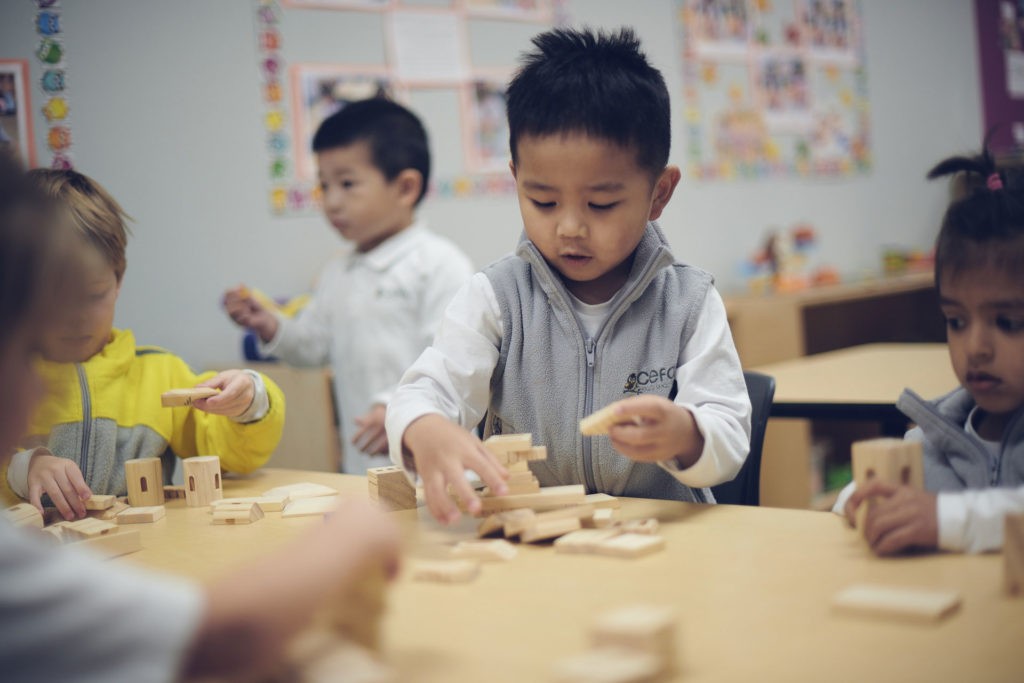Essential benefits of engineering for your little one
In the last decade, engineering has become a much debated topic for early learning education experts. In the past, many believed that teaching young children engineering skills and principles wasn’t beneficial, except for the few children who showed an aptitude for it.
More recently, researchers have found that even if a child doesn’t become a top engineer in the future, the transferrable skills learned from engineering work is immensely valuable in a variety of other life paths. The fundamental elements of the engineering field teach young brains core life skills that are essential in leading a successful life.
Here are three important benefits researchers have noticed in children who learn engineering as part of an early learning curriculum.

1. Engineering develops attentiveness and problem-solving skills.
At a foundational level, an engineer is responsible for developing practical, effective solutions to problems. This problem-solving skill requires advanced brainpower.
When children practice engineering, they are engaging the reasoning and problem-solving areas of their brain in a dynamic way to observe, investigate, analyze, and solve a problem. First, a child attentively observes and inspects the situation to identify the underlying issue that requires a solution. Then, the child exercises their problem-solving skills by coming up with hypotheses, testing them one by one, and finally deciding on the best possible solution.
For example, if you tell a child to build the tallest tower from building blocks, they may build upwards until it falls over. They are then encouraged to find new ways to stop their building from falling (perhaps by building it against a wall for support, with a larger base, or using different building supplies). Then working with this new technical background information, they may experiment with different ways until they see a solution that works to build their tower taller than the previous time.
Teaching engineering for kids in early learning programs, classes, or camps helps them build and strengthen their analytical and scientific skills.

2. Engineering stimulates creativity.
As a child investigates different ways to solve their problem, their creativity soars. For example, a child uses their creativity and known knowledge about the world around them to observe, interpret, and evaluate a problem through multiple angles. It takes a high level of creativity and attention to detail to come up with ideas for what can aid in their solution, especially when it comes to introducing new elements (like a wall to support the tall tower).
Incorporating engineering activities in early learning education encourages children to view and think differently while developing their soft skills. It also shows them how to combine or alter previously acquired knowledge to come up with a new, creative solution.

3. Engineering strengthens logical/critical thinking.
A child develops and extends logical/critical thinking when engaging in engineering activities. We’re teaching them that most problems are the result of situations we have not yet seen, acknowledged, or considered. To find these causes, a child learns and practices the logic of cause-and-effect relationships.
Then, the child is introduced to other core elements of logic such as inductive and deductive reasoning and is encouraged to test and apply their reasoning and ideas in the situation. Logic and critical thinking are significant for understanding mathematics and science, in addition to everyday decision-making and communication; all skills they will need throughout their lives.
Practicing engineering technical skill doesn’t need to be complicated or intimidating for you (the teacher) or the child. It can be as fundamental as asking a child to build a bridge or tower with building blocks or other supplies. By connecting these fun activities (building and creativity), knowledge of engineering job principles, and other learned knowledge, a child begins to view their world with the eyes of an investigative engineer.
At CEFA, the Engineering Program is part of our STEM (Science, Technology, Engineering, and Math ) curriculum, playing a fundamental role in setting the foundation for future learning. We incorporate age-appropriate activities with materials and situations that require solving problems and are interesting and meaningful for students. Engineering activities provide opportunities for children attending CEFA to grow and mature, while the design challenges promote enhanced social and emotional learning at this pivotal early age.
